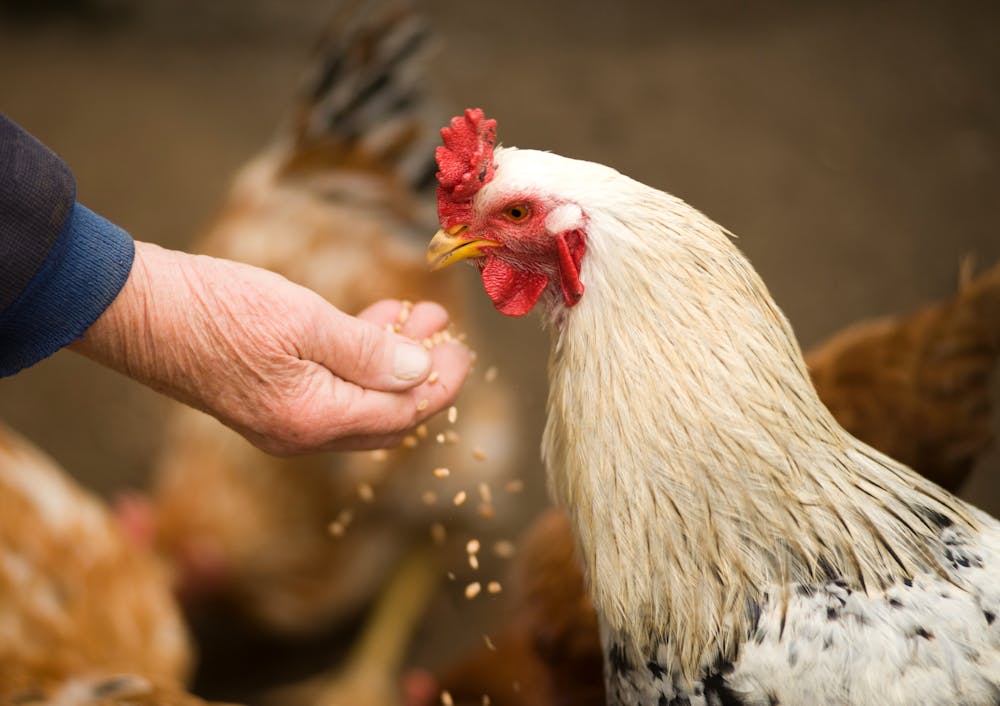Assuming your chickens are happy because they eat, lay, and cluck around your backyard? Then you might not be fully aware of what chicken raising is. The comfort goes far beyond just food, water, and shelter. As chickens are sensitive, meeting their physical and mental needs has to be your top priority. Yet, if you still offer the perfect chicken coop setup and proper feeding routine, tick all the boxes below to ensure your flock is as comfortable as you offer.
Lack of Space Leads to Constant Stress
Many flock keepers fail to give enough space. When overcrowding is prominent inside the coop, it automatically drives various stressful factors like aggression, feather pecking, and lowered egg production. Since they demand the roaming area to be free to spread their wings and engage in natural behaviors like dust bathing and scratching, they are active to the moment.
Bullying will become common if you constrain the space and give equal place to dominant birds with weaker ones. It’s not just about square footage—it’s about whether each chicken can access food, water, shelter, and space without competing. Giving your flock adequate room helps reduce stress and allows for a healthier, happier environment.
Poor Ventilation Causes Hidden Health Problems
If your coop smells musty or feels humid, your chickens are already uncomfortable. Chickens are highly vulnerable to external environmental factors. For example, ammonia can be caused by the moisture present in the ground, which is caused by their droppings. So, without proper ventilation, it can be a headache for both chicken and flock owners.
Fresh air circulation is essential year-round, not just in summer. In winter, many owners mistakenly seal the chicken coop too tightly to keep out the cold, but this traps moisture and increases the risk of frostbite and illness. Well-placed wall vents help remove humid, ammonia-rich air while keeping your flock dry and warm.
Inadequate Roosts Disrupt Sleep
A peaceful night’s rest is just as crucial to chickens as it is to humans. Roosts are where they sleep, perch, and feel most secure. If roosting bars are too narrow, too low, or placed too close together, chickens may struggle to settle in comfortably. Improper materials can also cause sore feet or injury.
Roosts should be above the ground level, with enough space for each bird, and made of smooth, rounded wood that mimics a natural perching surface. To evaluate your bird in this aspect, you can notice that your birds choose the nesting boxes to sleep in. If so, it is time to renovate the roosting setup.
Boredom Breeds Bad Behavior
Chickens are naturally curious animals. They love to explore, peck, scratch, and investigate their surroundings. When confined in a dull environment without stimulation, they can quickly become bored, which often turns into destructive behavior. Feather picking, egg eating, and bullying are all signs your flock may be mentally unstimulated.
Providing enrichment doesn’t have to be complicated. Hanging cabbage heads, scattering scratch grains, offering dust bath areas, or rotating simple toys can keep them busy and happy. Access to a safe outdoor space where they can roam and forage is also a massive boost to their mental health.
Dirty Conditions Cause Discomfort
A clean coop is more than a point of pride—it’s a cornerstone of your flock’s comfort and well-being. Damp bedding, soiled nesting boxes, and caked-on droppings can quickly lead to health issues like mites, respiratory infections, and foot problems.
Your weekly routine should include regularly cleaning the coop, refreshing bedding, and checking for signs of pests. Nesting boxes should always be dry and inviting so that hens can rest peacefully. If your coop smells strong or looks dirty more often than not, it’s time to reevaluate your cleaning schedule.
Lighting That Disrupts Natural Rhythms
Light exposure dramatically impacts your chickens’ behavior, laying cycles, and rest. Too much artificial light—especially during nighttime—can interfere with their natural circadian rhythm and lead to stress or poor egg production.
On the other hand, insufficient daylight can also decrease laying and dip mood. Natural lighting should be prioritized, and if you’re using artificial lighting in winter to support egg production, make sure it mimics sunrise and sunset patterns and never keeps the coop bright at night.
Final Thoughts
Your chickens may seem happy in terms of yielding results, but their daily comforts will pay off in the long term. Whether it is spacing and ventilation or enrichment and cleanliness, a careful approach benefits both sides. From ensuring the coop is not just protective but also gives a quality life to offering a thriving backyard environment, every factor ensures productivity and friendly companions.


